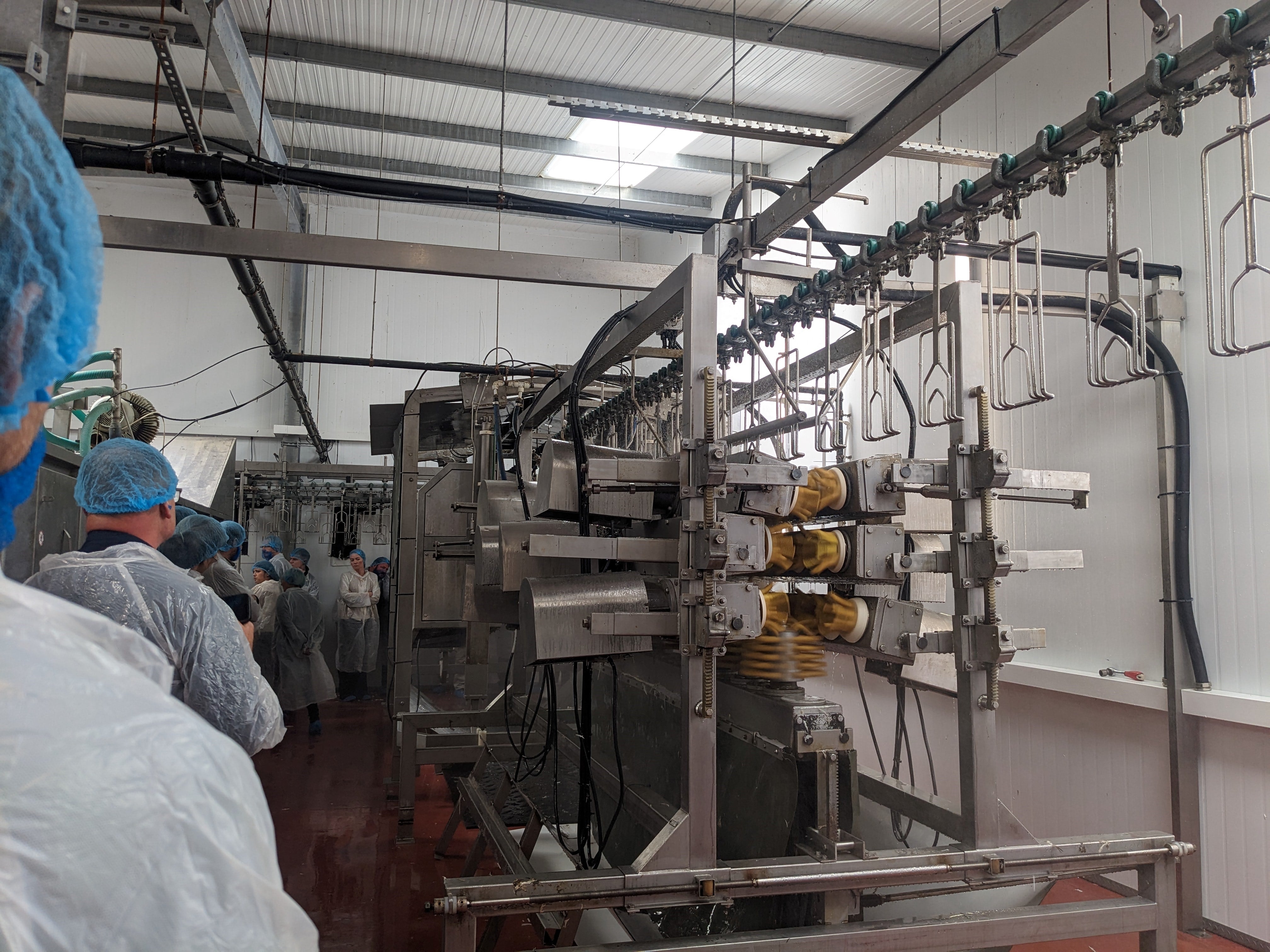At its recent triennial conference, Paul Kelly, MD for family-run business Kelly Turkeys, painted a challenging picture for the UK poult market – with imported butterfly cuts continuing to erode domestic market share.
With today’s prices between turkey and chicken fairly comparable and the two largest processors (Bernard Matthews and Avara) now owned by chicken companies, Kelly encouraged local poult farmers to ‘get with the times’.
Fresh vs frozen turkey
Seasonal turkey volume remains relatively flat year-on-year, with frozen outperforming fresh – particularly so for breast joints.
Within fresh, whole bird volume sales have increased (+4.9%) but spending growth is down (-1.4%) for the 4 weeks ending 29 December 2024 compared to year prior.
For crowns (whole bird except thigh and drumsticks) value sales have increased (+2.2%) whilst volume growth has plummeted (-4.2%).
Frozen has seen decline for whole bird in terms of value with incremental growth in volume, and crown joints has seen drops in both volume and value. Frozen breast joints, however, have spiked, increasing by +31.7% in spend growth and by +26.2% in volume growth.
Promotions in frozen are more prominent than fresh, with the former seeing a +6.8% lift between 2023 and 2024, reaching 49.6%. Fresh on the other hand has witnessed a -1.1% drop from 2023, now at 34.2%.
Supermarket share
Lidl, M&S and Tesco are the main winners in terms of volume sales in fresh turkey, with all having seen increased penetration. Lidl, however, has seen the biggest gain in Y-o-Y at +44.2%.
Whole birds have been the main driver for Lidl, but it is also seeing positive traction in crowns. The retailer has very little choice in joints.
Tesco has the biggest market share at 22.6%, with volume seeing a +8.5% lift. Whole birds have again been the driver (+23% Y-o-Y), with maintained Clubcard activity across the majority of the range.
M&S shares a similar story, with whole birds leading the growth. The retailer has increased range and availability of whole birds, alongside changing the fixed price across the range with a clear weight and pricing structure
Meanwhile, Asda has seen whole bird and crowns decline, while breast joint volume doubled Y-o-Y.
For seasonal frozen turkey, Tesco, Lidl and Sainsbury’s were the fastest growing retailers.
Tesco saw the biggest rise, with a +37.7% uptick between December 2023-2024, following closely by Lidl at +37.6%.
Whole birds and breast joints were driving the growth at Lidl, but prices were down -14% on average across whole birds and crowns. Shoppers also bought bigger birds.
At Tesco all joints were in growth but whole birds drove the majority. Clubcard pricing maintained throughout the campaign with prices lower than last year.
Sainsbury’s, which saw a smaller but notable +15.6 increase, was led by frozen turkey crowns. Nectar card promotions offered lower prices on crowns and an extra-large crown was added to supermarket’s range.
While the majority of UK households still buy turkey at Christmas, the number of SKUs in stores is also minimal compared to chicken. According to Toby Kelly, sales and new product development lead at Kelly Turkeys, Ocado offers 8 turkey SKUs vs 246 chicken; Sainsbury’s 11 vs 83; Tesco 11 vs 80+.
If we stay on the current path – focusing on only whole birds at Christmas, in 20 years, Kelly warns that there will be 60% fewer turkeys reared and processed on independent farms.

The Kelly Turkeys managing director believes there is an untapped opportunity to counter the domineering import market, with UK suppliers offering more joint and convenience-geared options, alongside the traditional whole bird.
Currently ready-to-roast and pre-cooked has 28% market share and a third of consumers (33%) are considering animal welfare when choosing a bird – trends which the domestic market can leverage with premium British options.
Whilst Kelly Turkeys has already started tapping into these trends, the business is keen to collaborate with fellow farmers in promoting awareness of British turkey.
Kelly has said next year offers the perfect option, with 2026 marking the 500th year of the turkey in the UK; and is suggested the industry rallies together to launch a national campaign.


